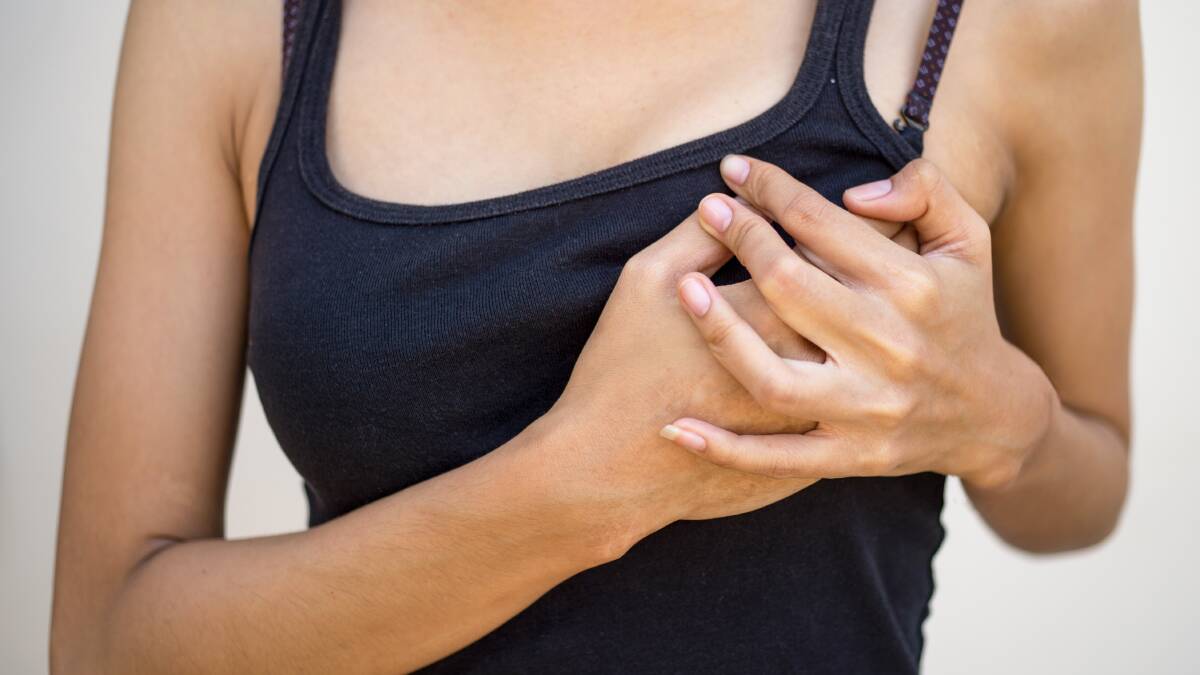How safe are breast implants?

Women's concerns about the safety of breast implants intensified last year following findings that linked them in some cases to a rare form of cancer called lymphoma.
It prompted action by Australia's Therapeutic Goods Administration to restrict the use of particular styles of implants.
For many years there have been discussions about the other possible health risks and complications that can be associated with breast implants ranging from leaking implants to a condition that has been labelled "breast implant illness".
So how safe are breast implants today?
Newcastle's most experienced plastic surgeon, Dr John Newton, who has performed more than 10,000 breast surgeries in his 30-year career, said that in reality serious complications related to breast implants occurred infrequently.
"And when complications do occur they are usually relatively easily manageable," said Dr Newton.
Here Dr Newton answers some of the top questions he is asked about the safety of breast implants.
1 Will my implants rupture?
These days, breast implants are very resilient and the leak/rupture rate is very low. However, it isn't zero and it's unpredictable as to how long an implant will last. Most companies give "lifetime warranties" on their implants. But this is not a guarantee. I've seen implants last 30 to 40 years and I've also seen implants leak after only four to five years. They are not indestructible and if you have implants they may at some time leak.
2 How will I know if my implants have leaked?
A leaked implant may cause no problems and there may be no symptoms or signs. If the implant itself breaks down and the silicone inside remains entirely within the pocket of scar tissue that has formed around the implant, there may be no signs to suggest it has leaked. However, if it has leaked, and the silicone has escaped through the pocket of scar tissue around it, you may have an area of tenderness or a tender lump.
3 Will I get lymphoma from the implants?
The first question here is to understand what lymphoma is. Lymphoma is a blood cell cancer. It is important to realise that the incidence of this lymphoma in association with implants is rare. It has not been found in association with smooth surfaced implants. It has only been found in association with textured surfaced implants. Depending on the degree of texturing of the implant, the incidence varies from approximately one in 2,500 patients through to one in 85,000 patients. So the answer to this question is yes, it is possible for you to develop lymphoma in association with your breast implants but it has only been shown to occur with textured surfaced implants and the incidence is very low.

4 What happens if I develop a lymphoma?
The first sign in the development of lymphoma is usually a collection of fluid around a breast implant in the space between the implant and the scar pocket you have formed. Technically, a collection of fluid in this space is called a seroma. The vast majority of these collections are not lymphoma but are simple collections of fluid. If you do develop a collection of fluid it is important to have an ultrasound of your breasts and drainage of some of the fluid. This fluid should then be checked to see if there are cells in the fluid that are suspicious of lymphoma. Other findings consistent with lymphoma would be new lumps in the breast tissue or the axilla (armpit). If you notice such lumps it's important not to ignore them but to have them investigated.
5 Will the silicone spread through my body if my implants leak?
If your implants leak, the silicone may remain entirely within the pocket of scar tissue. If that silicone escapes outside of that pocket it can spread into the local tissues and this can cause lumpiness and pain. Our bodies have a cleaning system referred to as the lymphatic system. The job of this system is to clean away unusual or abnormal material. The silicone of older, very soft implants can be absorbed into the lymphatic system and can migrate via that system toward the lymph nodes in the armpit. These lymph nodes are actually superfine filters and will generally filter out the silicone. This can cause some lumpiness in the lymph nodes in the axilla and it can show up on ultrasounds. Spread of silicone beyond the lymph nodes is incredibly rare.
6 Will I get a breast implant illness because I have silicone-filled implants?
Breast implant illness as a medical disease is very poorly defined. Its identity as a recognisable medical illness is not clearly scientifically proven. I believe there are patients who have symptoms of a generalised type which they identify as being related to their breast implants. Indeed I have an extremely small number of patients that fit into this category. My personal belief is that if you have a low grade bacterial or viral contamination of your breast implants - which can occur subsequent to a urinary tract infection or a dental infection - then your body may react to that virus or bacteria and produce a normal reaction process. This doesn't mean the breast implant is causing the illness but rather the infection associated with the breast implant is contributing. Considerable research went into concerns about "breast implant illness" in the late 80s and early 90s and no significant diseases were found to be associated directly with silicone and no connection between "breast implant illness symptomatology" and breast implants was able to be proven.
If you do have breast implants and are concerned, it is wise to visit your GP and it is best to see the plastic surgeon that put the implants in for you. If you have information which identifies the implants you have, it is a good idea to take that along with you.
This is sponsored content for Cosmetic Plastic Surgery.


